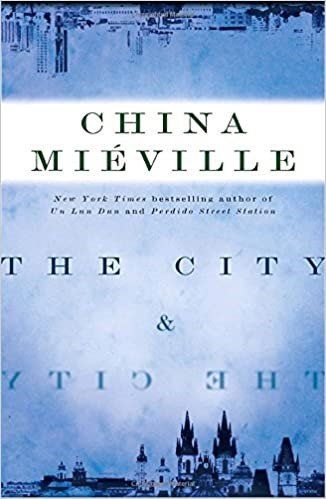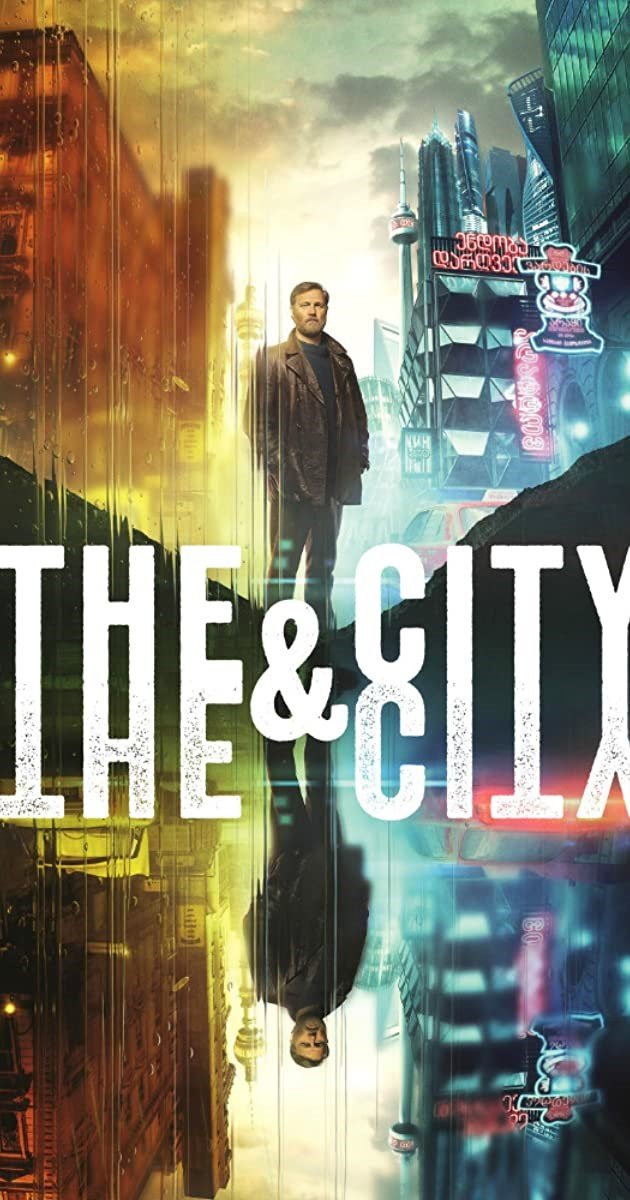Brian Welby Poore is a nerd, I.T. professional, audiobook enthusiast, food-festival photographer, and podcast junkie. He has had over 400 stitches on his hands and was once heir-apparent to a potato chip empire. You can find his mercurial blog at alotofwords.net.
The City and the City & The City and the City
China Mieville has said he wants to write a novel in every genre, and his entry into the police procedural category joined my list of favorite books before I’d finished reading the first third. The book follows a case under investigation by Inspector Tyador Borlu of a fictional Eastern European city-state called Beszel (pronounced ‘beh-ZHEL’ but faster). Beszel has a doppelganger city, Ul Qoma, that occupies the same geographic boundaries, with territory interwoven with or overlaid upon each other. A stretch of street might be in one city or the other, or in both with different names. Residents of Ul Qoma are forbidden from seeing Beszel and vice versa. A breach between the city-states is a crime, enforced by an independent power called Breach, whose authority lies exclusively in dealing with breaches, but in that narrow band their dominion is absolute. A breach, even an accidental one, often results in the breacher never being seen again.
Within this bewildering environment Borlu investigates the murder of a young woman, first thought to be a prostitute, but it seems no other prostitutes know her. Borlu doesn’t fall into the tropes of reluctant hero or white knight. He’s simply a good cop, and when the case becomes more complicated - the girl was murdered in Ul Qoma and dumped in Beszel - he dutifully tries to hand it over to, which is to say, invoke Breach, the agency with the resources to pursue the case. But a video mysteriously turns up of the vehicle that dumped the body, and it turns out that while the crossing itself was illegal in both cities due to the transport of the body, it was not breach, because the crossing occured at the one appropriate border between the two cities. Crimes were assuredly committed, but breach was not one of them.
I loved this book. I hated the miniseries.
The miniseries misses the mark. It takes Borlu (played by English actor David Morrissey) from being an intellectual, mild-mannered police inspector to being a man who is obsessed with the disappearance of his wife - a wife who is not in the book at all. The miniseries heavy-handedly turns Borlu into a tragic character, a broken man, someone in desperate need of a generic redemption arc™ and answers to his personal quest. It makes the story about his personal issues more than the thought-provoking puzzle presented in the novel.
Many of the story elements remain unaltered. The investigative path largely mirrors that of the book: Borlu follows the same clues, speaks to many of the same witnesses, and in the end finds the same culprit. But in a presumed effort to make the story more accessible and the main character more relatable, the miniseries diverts focus from the story the book tells; it adds shlock and makes that shlock the hub that Borlu revolves around.
Tony Grisoni, the scriptwriter for the miniseries, has a pedigree that would make you think he wouldn’t do violence to Mieville’s bizarre world - he’s worked multiple times with director Terry Gilliam, a man not known for banal works. And in fairness, Grisoni did some things right.
The change of Senior Detective Dhatt (performed by German actress Maria Schrader) to a female instilled more depth in her character and in her interactions with Borlu. Constable Corwi’s less obsequious attitude gave British actress Mandeep Dhillon opportunity to be more of her own character rather than the nearest useful tool in Borlu’s investigation.
The striking visuals, helmed by director Tom Shankland, rewards fans of the book with thoughtful and defined contrasts . The challenge of living in a world where the characters must unsee not only people, but buildings, cars, and even litter was captured well. The distinct fashions and architectural styles of one city versus the other highlighted the weird foreign upon foreign feel in the book. Borlu’s disorientation when making the journey from Beszel to Ul Qoma and later into Breach worked strongly.
Both book and miniseries avoided a narrative trap to my delight. In a story that centers around not seeing the people all around you, there’s an obvious metaphor about societal indifference that lesser story tellers might have indulged in moralizing about, thereby overwhelming the story of the dead girl, the puzzling environment, and the untangling of a complex riddle. The reader/viewer is never clubbed with that lesson, but is left to find it on their own on re-exploring the story. The tale is layered and potent, and much like the map of the two cities, it’s not always clear where you should be looking. If Mieville keeps to his word and writes a book in every genre, I hope he works his way back around to writing another mystery.






